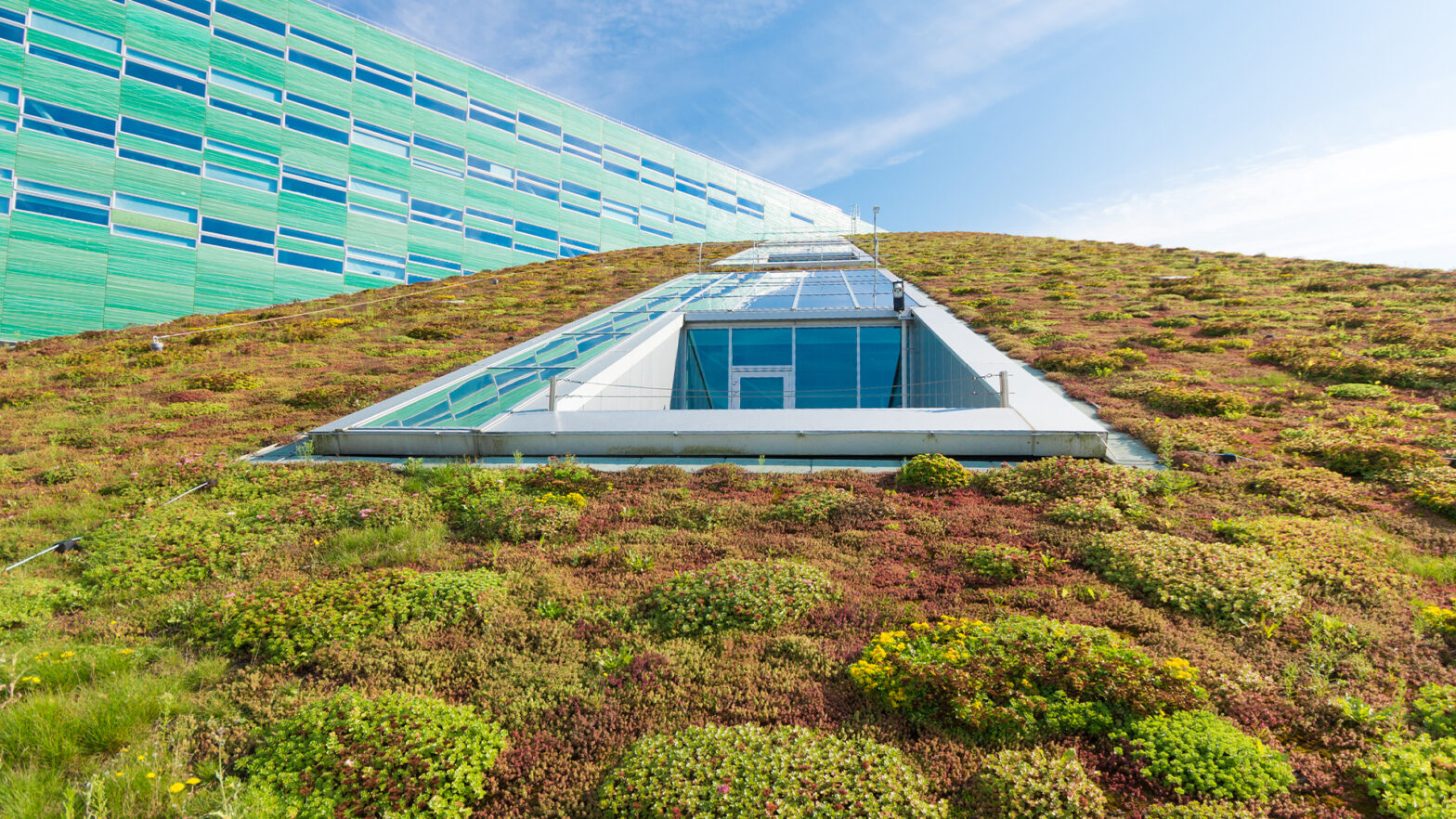The construction industry has seen a rise in investments in renewable energy infrastructure, and sustainability is expected to be one of the key drivers of the market in the next few years. There has been exponential growth in populations around the world, and experts predict that by 2050, 68% of the world’s population will live in cities.
With this in mind, it’s no wonder that the construction industry is spending more on infrastructure development and finding ways to make the sector more sustainable.
The environmental challenges construction businesses face
Before looking at the opportunities, it’s worth taking a moment to assess the challenges businesses within this sector are up against. For starters, building sites produce large quantities of air, water and noise pollution, with the industry as a whole accounting for almost 38% of greenhouse gas emissions on a global scale.
These emissions increase light-to-heat exchange and trap extra energy in the environment, increasing the planet’s temperature and causing adverse effects on the environment. With sustainable construction opportunities, there’s the chance to decrease these emissions and reduce the greenhouse effect caused by the industrial sector.
The COP26 Climate Conference put a huge emphasis on sustainability, and it forced industries to consider the ways they can change their processes and systems to tackle climate change more effectively.
For the construction industry, there was an emphasis on greener construction and an increased demand for sustainable initiatives. Construction firms need to consider innovative ways in which they change up their processes to lower their impact on the planet, such as working with third parties that value sustainability.
For example, contactless payments are not only easier for businesses, but they also reduce waste – SumUp is a brand that is striving to have a positive impact, maintaining compliance with the WEEE directive that enables their clients to dispose of old card readers responsibly, and by donating 1% of profits to environmental causes.
Similarly, logistics firm Wilson James is making efforts to mitigate their impact on the environment through reducing their water, energy and paper usage across the business, and providing resource-efficient products and facilities for employees.
Working with like-minded companies has a knock-on effect to the businesses that work with them, and it’s just one of the ways that construction firms can do more when it comes to investing in sustainability.
There are also specific sectors of the construction industry already making headway when it comes to best practises and environmentally-friendly efforts.
Using energy-efficient technology
One of the ways that countries in the Paris Agreement are working towards shared climate goals is with technology. There are far more efficiency-enhancing devices that companies can utilise now that will help businesses to reduce their building emissions and that create a smaller carbon footprint overall.
From smart heating and lighting to appliances, construction firms and builders can now ensure that a building’s long-term emissions are far lower, while also saving the client or future residents money on utilities. New builds are now expected to have energy-saving features to bring the impact of buildings down, and renewable energy systems such as solar panels are a great way to do this.
Smart cities
Energy efficiency-enhancing devices don’t just reduce energy usage, they also help to minimise pollution at an atmospheric and surface level. There’s an increasing call for smart cities to provide the infrastructure for a more energy-efficient world – something that construction firms have the opportunity to get involved with at the ground level.
Smart cities will require a full replacement of lighting systems to save energy through motion-triggered lights, EV chargers to allow for more electric vehicles and communication networks to deliver connected solutions for the general public. Tech-forward construction businesses will be key players when it comes to making the switch over to smart tools and systems.
Modular systems
Following the challenges the construction sector, among many other industries, have faced since the pandemic, the demand for e-commerce has risen exponentially. We’re all still being cautious when it comes to social distancing and isolating to keep each other safe, and the need for warehouses has increased as a result.
Modular construction is the solution, enabling construction teams to build sections off-site to reduce waste and minimise emissions. When each section of the build is complete, it’s transported to the site and installed together. It’s a method that is far more sustainable than on-site building and it also boosts the recyclability of materials and reduces waste as a result of errors. Modular development is on the rise, and it’s something that an increasing number of clients are requesting.
Renewable materials
Another way that the construction industry is making headway in terms of sustainable solutions is through the use of eco-friendlier materials. From volatile organic compounds (VOCs) in paints to plastics that leach into water supplies and topsoils, there are many construction components that can cause damage to the environment and human and animal health.
Swapping out these harmful toxins for an environmentally friendly alternative can help construction firms to make a safer, healthier build that doesn’t contribute towards climate crises.
Sustainable firms are now advocating for the use of recycled woods, non-VOC paints and emission-free materials that will set construction professionals apart as the demand for sustainable materials increases.
Final thoughts
The construction industry is such a key component of greenhouse gases and practises that are harmful to the environment that changes need to take place as soon as possible. From energy infrastructure to sustainable materials, construction firms have more ways than ever to do better for future generations.
Construction professionals should focus on staying competitive by keeping up with the latest accreditations and qualifications related to sustainability.
Both residential and commercial clients are increasingly seeking out accredited professionals who understand the importance of sustainability, and staying ahead of the curve with certifications will not only appeal to clients but also ensure staff are knowledgeable in the subject so they can make better decisions in the future.






























